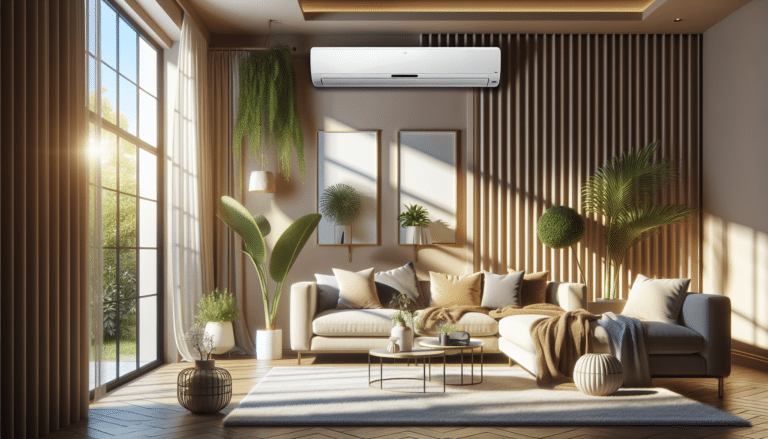Understanding Split Air Conditioning Services
Split air conditioning systems have gained immense popularity in both residential and commercial settings due to their flexibility, efficiency, and reduced footprint. Unlike traditional centralized air conditioning systems, split air conditioners consist of two main components: an indoor unit (the air handler) and an outdoor unit (the condenser). This separation allows for straightforward installation and offers a range of benefits, making them an appealing choice for many homeowners and business owners alike.
Advantages of Split Air Conditioners for Homes
One of the most prominent advantages of split air conditioners is their energy efficiency. Modern split air conditioning models often come equipped with advanced technology designed to optimize the cooling process while minimizing energy consumption. According to various air conditioning energy ratings, many energy-efficient air conditioning models can lead to significant savings on utility bills. This is particularly beneficial in regions with long summers, as the demand for cooling can inflate costs dramatically.
Another primary benefit is the flexibility in installation. With multiple indoor units available, you can easily choose the right air conditioner unit to suit the layout and requirements of your space. Whether you opt for wall-mounted or ceiling-mounted air handlers, mini-split air conditioners can blend seamlessly into your home’s interior design.
Air Conditioner Installation Essentials

When considering air conditioner installation essentials, it’s vital to assess factors such as unit size, installation costs, and requirements related to local climate conditions. Selecting the right air conditioner unit size is crucial because an oversized unit can lead to inefficiencies and increased wear and tear, while an undersized unit may struggle to keep up with cooling demands.
Before installation, it’s advisable to conduct a detailed assessment of your home’s cooling needs. This includes evaluating insulation levels, window sizes, and overall square footage. A professional consultation can improve air conditioner efficiency and ensure that you choose the ideal system for your specific requirements.
Mini-Split Air Conditioners: Cost-Effective Solutions
Mini-split air conditioners are particularly known for their cost-effective advantages. The initial investment might be higher than traditional window units; however, the long-term savings on energy bills and lower maintenance costs can make them a financially sound choice over time. Mini-split systems come equipped with inverter technology that allows for variable speed operations, adjusting the compressor speed according to the desired temperature, thus increasing efficiency.
Air Conditioning System Maintenance Tips
Regular HVAC system maintenance repair is essential for ensuring the longevity and performance of your split air conditioning system. Here are some effective air conditioning system maintenance tips:
1. **Filter Cleaning and Replacement**: One of the simplest yet most critical tasks is regularly cleaning or replacing filters. Clogged filters can significantly hinder airflow, reducing efficiency and increasing the strain on the system.
2. **Outdoor Unit Care**: Outdoor unit maintenance tips include clearing debris such as leaves, dirt, and grass around the condenser. This enhances airflow and helps maintain optimal function.
3. **Scheduled Professional Inspections**: Routine inspections by professionals ensure that any potential issues are identified and resolved swiftly, drastically reducing the likelihood of major repairs down the line.
4. **Check Refrigerant Levels**: Keeping refrigerant levels optimal can prevent common air conditioning problems. If levels are low, this could indicate a leak that needs immediate attention from air conditioning repairs professional help.
Common Air Conditioning Problems and Fixes
Being aware of common air conditioning problems can empower homeowners and business owners to troubleshoot effectively. Some frequent issues include:
– **Poor Cooling Efficiency**: This might result from dirty filters, blocked vents, or refrigerant leaks. Cleaning filters and ensuring that airflow is unobstructed can often resolve the issue.
– **Unusual Noises**: Sounds like rattling or buzzing often indicate loose parts or debris. Investigation of the unit may reveal minor issues that could be easily fixed.
– **System Not Turning On**: This may stem from a power supply issue, a blown fuse, or problems with the thermostat. Checking connections and replacing blown fuses may solve the problem.
Air Conditioner Repairs Guide
For homeowners and businesses looking to manage air conditioner repairs, a comprehensive guide should include steps for troubleshooting common issues, identifying when it’s time to call for professional help, and understanding potential repair costs. Enlisting the services of experienced technicians can help avert minor issues escalating into costly repairs.
Ductless Air Conditioning: Pros and Cons
Ductless air conditioning systems, like mini-splits, offer distinct advantages. Among the ductless air conditioning benefits are ease of installation, flexibility, and enhanced energy efficiency. However, it’s essential to weigh these against the ductless air conditioning pros cons. Higher upfront costs can be a deterrent for some, and their aesthetic fit within a living space might not appeal to everyone.
Commercial Air Conditioning Services Maintenance
For business facilities, robust air conditioning services, including maintenance, play a vital role in keeping operations comfortable and conducive for employees and customers. Commercial air conditioning best practices include regular system checks to ensure systematic functioning and prompt repairs to minimize downtime.
Investing in a proactive maintenance plan can lead to improved operational efficiency, maximizing the lifespan of the equipment while minimizing costly repairs.
Improving Air Conditioner Efficiency
Enhancing air conditioner efficiency is achievable through minor adjustments and ongoing maintenance. Regularly scheduled professional servicing plays a significant role, and simple practices like utilizing programmable thermostats can allow for automated temperature adjustments based on occupancy, thus optimizing energy usage.
Moreover, investing in air conditioner equipment upgrades, like smart thermostats or zoned systems, can significantly boost energy efficiency over time.
In conclusion, split air conditioning services encompass a range of options and solutions for maintaining an efficient, comfortable indoor climate. By understanding your system and utilizing best practices for installation and maintenance, you can enjoy the numerous benefits that split air conditioning offers, all while ensuring cost-effectiveness and longevity for your investment.
